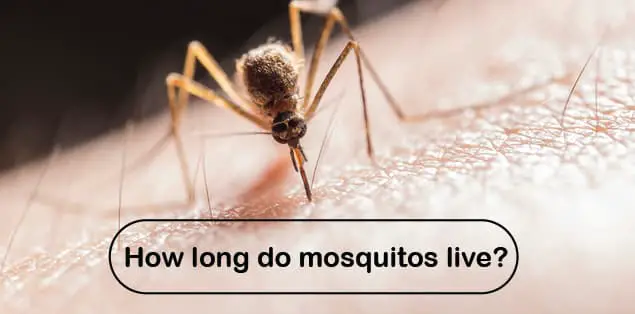As soon as you hear the name ‘mosquito,’ a petite blood-sucking devil comes to your mind, and suddenly you feel an itching sensation in your body. Mosquito bites are unpleasant in and of themselves, but humans have known for a long time that mosquitoes transmit diseases. They can leave you in the hospital for days at a time.
Furthermore, they are a hazard while you are trying to sleep. It is important to note that only female mosquitoes bite transmits diseases. The majority of female mosquitoes lay eggs immediately after drinking blood. So let’s see how long do mosquitos live.
There are many different types of mosquito bites and mosquito species. This article will provide important information about mosquitoes, such as their lifespan, how long they can survive outdoors and indoors, how long female and male mosquitoes live, and information about their species.
How Long Do Mosquitoes Live Indoors?
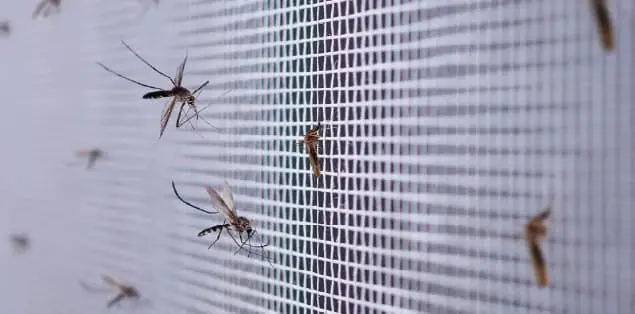
If you’re wondering how long mosquitoes live, you’ve probably just had a mosquito bite (or 12). Some people are more likely than others to be bitten by mosquitos. Indoor mosquitos can live for a long time as their lifespan in the home can range from four days to a month.
According to kidadl, female mosquitoes can live in your home for up to three weeks after they have finished biting. Most species, however, will not live that long, but it can still seem like a long time when dealing with them.
A male mosquito will only live 6 – 9 days in your home, but these creatures are not to be feared: male mosquitoes will not bite anyone. Instead, you’ll quickly notice the difference between males and females. It is due to the female’s intense attraction to your blood, whereas the male is only interested in females.
How Long Do Mosquitoes Live Outdoors?
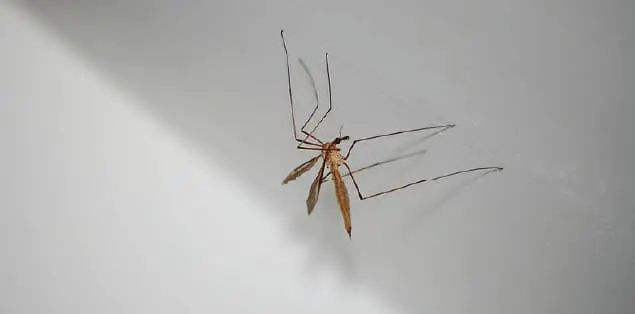
The length of the mosquito life cycle and lifespan varies depending on species and environmental factors such as temperature and moisture. According to aptive.com, all mosquitoes go through egg-laying, larval, pupal, and adult development stages.
The Egg-laying Stage
Male mosquitoes feed solely on plant nectar, whereas females extract blood from hosts to develop and nourish eggs. The majority of mosquitos lay their eggs directly in water. In contrast, others lay their eggs near, but not in, bodies of water.
Turning into Larvae Stage
Within 24 to 48 hours, larvae eggs hatch into larvae. Larvae quickly grow to be about 5 mm in length. The majority of larvae breathe through air tubes. You can see larger larvae floating just above the water’s surface in infested areas. Larvae and pupae cannot survive in the absence of water. If a water source evaporates before the larvae and pupae mature into adult mosquitoes, the young often die.
Larvae Turn into Pupae Stage
Larvae reach the pupal stage in seven to ten days. You can also see Pupae on the breeding site’s surface. A mosquito will emerge as an adult from its pupal case once it has fully developed. At this point, the new adult stands in the water and dries its wings before taking flight. Adult female mosquitoes will then look for an animal to feed on. Females can fly for miles if necessary and lay more than 100 eggs at a time.
How Long Do Mosquitoes Live Without Blood?
An adult mosquito lives its entire life without needing to feed on blood because its anatomy is unsuitable for sucking blood.
On the other hand, female mosquitos have a completely different life cycle. For example, suppose a female mosquito has recently sucked blood. In that case, she can go for a couple of days without needing to provide again. They can also feed like male mosquitoes on nectar.
In addition, females feed on blood to survive and gather enough food for the egg-laying process. If the female mosquito can find food other than blood, she can live her entire life without sucking blood.
She needs to take a blood meal only when she has no other reliable source of mosquito eggs nearby. For blood-feeding adventures and breeding, mosquitoes prefer humid, warm climates. Mosquito eggs hatch more quickly during the summer because of the warm weather.
How Long Do Male Mosquitoes Live?
Mosquitoes have a relatively short life span, even if they survive being slapped, zapped, or sprayed. Male mosquitoes only live for about two weeks because they only feed on nectar. Therefore, environmental factors heavily influence their lifespan.
How Long Do Female Mosquitoes Live?
Multiple factors, including the environmental conditions in which mosquitoes have grown and the food sources to which they have access, may influence their lifespan.
Only female mosquitoes consume both nectars from the flowers and blood they suck. Female mosquitoes with a sufficient food supply can live for up to 5 months or longer. The average female life span is around 6 weeks. The female must usually consume a blood meal in addition to plant nectar to nourish and develop her eggs.
How Long Do Mosquitoes Live After They Bite You?
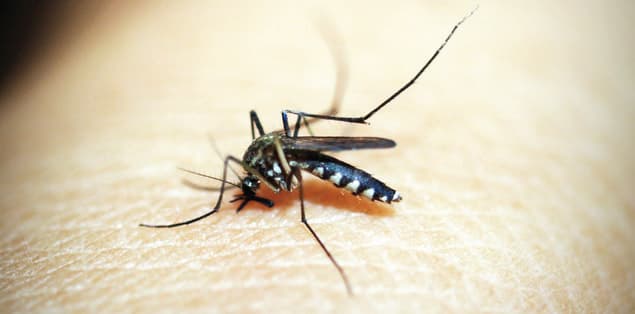
A mosquito’s life cycle in a room is typically very short. These blood-sucking pests appear to be biting as many people as possible.
In contrast to honey bees, which die immediately after stinging someone, mosquitoes do not die immediately after biting someone. An average of three weeks after their initial bite, they continue to feed on human blood and spread diseases like malaria. A female mosquito will continue to bite as many people as she can to lay her eggs, regardless of whether or not she is attempting to obtain blood from the victim. Without blood, she won’t be able to conceive.
Female mosquitoes may lay Between 200 and 300 eggs during their life cycle.
How Long Do Mosquito Hawks Live?
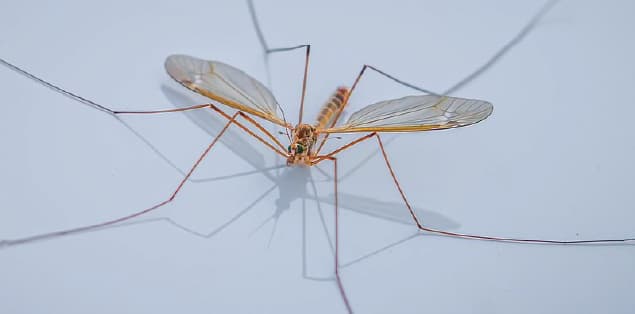
Mosquito hawks, also known as crane flies, are large, delicate flies. Yet, despite their appearance as large mosquitoes, they do not bite. They don’t do much – most species don’t even eat!
The crane fly’s life cycle typically lasts about a year, with most of that time spent in the larval and pupal stages. Adult crane flies live only a few days, long enough to mate and lay eggs. Many adult insects are so short-lived that they don’t even eat.
How Long Do Mosquito Larvae Live?
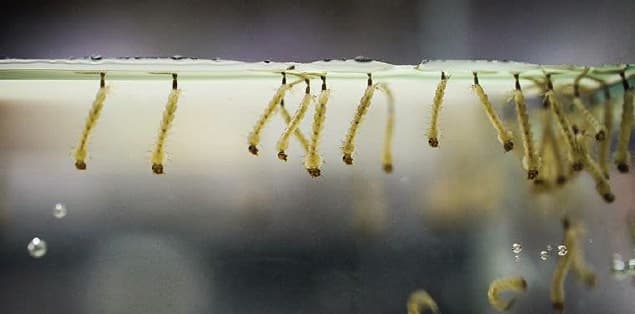
All mosquitoes go through the same four-stage life cycle, regardless of where they breed: egg, larva, pupa, and adult, with the larval and pupal stages always aquatic.
The larval stage begins with the hatching of the egg. Most mosquito larvae float on the water’s surface since they need air to survive. Larvae are equipped with a snorkel-like device known as a siphon, extending from their hind legs to their mouths above water. Aquatic microorganisms near the water’s surface serve as a food source for filter-feeding larvae.
Larvae are known as “wigglers” or “wrigglers” because of their ability to dive deeper into the water when they become alarmed. Larvae develop a new exoskeleton as they feed, which they shed as they grow out of their old one. Between these molts, the animals go through a series of instars.
Four instars are present at the larval stage. The larval stage lasts 4 to 14 days, depending on the species, water temperature, and food availability.
How Long Do Aedes Mosquitoes Live?
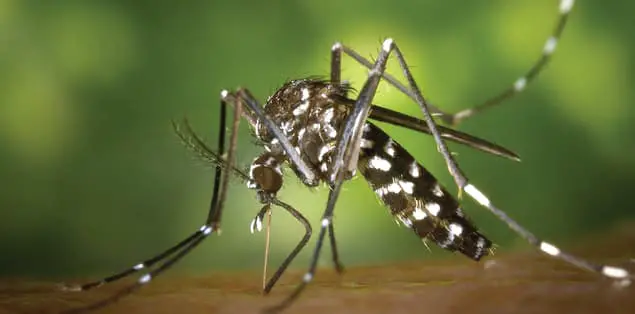
The Aedes Mosquito, also known as the ‘Yellow Fever Mosquito,’ has a lifespan of two weeks to a month, depending on environmental conditions. The average Aedes Aegypti mosquito will travel no more than 150 meters in its lifetime. On the other hand, its eggs can withstand drying and become highly mobile, allowing them to transport around the world attached to human belongings.
Final Words – How Long Do Mosquitos Live?
We have explained to you many important things relating to mosquitoes. These tiny evil creatures have been a problem for humans since time immemorial. How long mosquitoes live may be determined by us, their victims, and how well we protect ourselves from their bites.
Mosquitoes are doomed without their blood meals. Scientists have tried to develop various things to eradicate mosquitos from the planet, but they have not succeeded. Instead, these creatures play an essential role in the food chain and maintain ecological balance.
You should remove any stagnant water (think pool covers and clogged rain gutters) where eggs can hatch into full-fledged insects. You can also keep mosquitos at bay by planting plants in your backyard.
